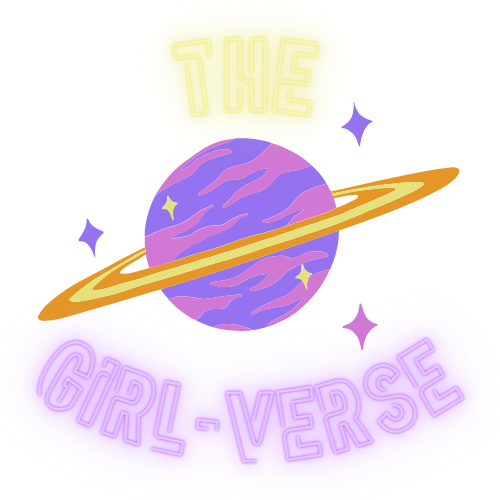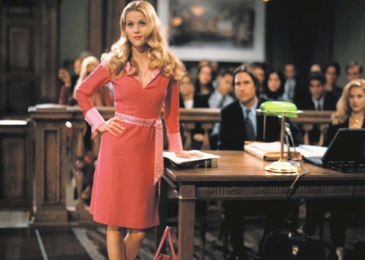Elle Woods
By: Katherine Eliason
Legally Blonde (Milan & Luketic, 2001), released on July 13, 2001, is often overlooked for its true meaning. What is seen as a lighthearted comedic film, rich in sarcasm and exaggerated humor, holds a weighted message. To a great selection of viewers, the plot of the movie involves the main character Elle Woods, who is a fashionable, superficial sorority girl who ironically enrolls at Harvard Law School, in an attempt to win back her ex-boyfriend. Throughout the movie, Elle navigates what her identity is, beyond what she confined herself to. Beyond what most people may notice, beneath the humor within Legally Blonde, Elle Woods represents the stereotypical molds made by society, empowering her audience to break free from them.
Elle Woods perfectly fit the stereotype that she was given by society from the start, aligning her personality with her physical attributes. Her blonde hair plays a key role in her personality, intelligence, and overall character. Though a first-time viewer could view Woods as a dumb blonde, as the film progresses, we see that she is an intelligent young woman, maybe even smarter than her Harvard classmates.
Elle is always well-kept with bouncy blonde curls, shiny glossed lips, and a fabulous wardrobe from head to toe. Elle never intends to mask her intelligence with this all-pink facade but is aware that people look down on her because of it. Throughout the film, Elle's physical attributes never fade away. It is admirable to viewers that even as Elle's character changes as she navigates her own truth and defines her own journey, not just for that of a man, her physical appearance stays the same as it always has been. Scott notices this consistency within Elle as they emphasize "Despite being constantly derided for being "too much," specifically, too feminine, she proves herself time and again, refuses to settle for a partner who does not respect her intelligence, and she does it all in hot pink." (Scott, Jocelyne, 2023). Elle does not feel the need to change her appearance despite society's expectations of a beautiful blonde. She works against the stigma that a woman must choose one or the other; pretty or smart. She refuses to be confined to a man's expectations of what she must look like to seem like a typical lawyer.
One of Elle's main attributes is her thriving social life and popularity. Elle has always had several friends at college being the president of her sorority, Kappa Kappa Nu. One of the hard truths Elle must face when arriving at Harvard Law is her struggle to fit in with the rigid, New-Englander lifestyle of all her classmates. They judge Elle a lot towards the beginning of the film, but over and over she proves she should be at the highly praised school as much as anyone else. (Milan & Luketic, 2001).
While Elle's social life begins to thrive, she never strays from her work and had a strong ethic from the start. While formally being the most social, popular girl in her previous college to rising to popularity at Harvard, Elle is exceeding professors' expectations showing that a girl can multi-task just as well as any man.
Elle's hyper-femininity also serves as a supposed gateway for the men in her life to oversexualize her and dumb her down to just a "pretty girl". Of course, Elle does not welcome these advances, but it is a very real struggle she must face. When Elle's supervising professor, Professor Callahan makes a sexual pass on her, she is confused and frightened. She has put real effort into working on the case just as much as all her peers and feels objectified and taken advantage of. (Milan & Luketic, 2001).
Elle refuses to use her looks to her advantage in a way of climbing up the ranks as a law student. She wishes to be valued for her brains, and not her beauty. Elle tangles with this problem throughout the film and despite her efforts is still simplified to just a pretty girl until the closing scene of the film where she wins the case for the legal team.
The multiple hidden messages within this film correlate with our course in many aspects. Elle Woods, as a character, defies and challenges the preconceived notion of her identity overall. One major topic we have discussed in this class was ''Who is the 'girl', which covered the definition of what makes up a girl, according to society. Societal standards have created a stigma around girlhood, categorizing it as a tight-knit stereotype. However, being a girl does not mean you should be held to any standard or belong to one specific thing. Elle Woods represents that, as she challenges the stereotypes about femininity, beauty, and intelligence. She shows that her identity shall no longer be constrained by societal expectations, as she breaks them, proving she is not belonging to such a silly thing. Through this, she sends an empowering message to all girls, reminding them to navigate their own identity, rather than limiting themselves and confining themselves to society's limits.
Within The SAGE Encyclopedia of Children and Childhood Studies, Helgren defines girlhood as she states, "Girlhood in the form of girl power is often a resilient, independent category that rejects vulnerability in favor of a heteronormative masculine individualism and self-sufficiency." (Helgren, 2020, p.842). Elle Woods represents this ideology of girlhood, with resilience against gender norms, defying the role she is expected to have. Her boyfriend originally breaks up with her at the beginning of the film because she does not fit the role he would want in marriage. Proving him wrong, she is woken up to the reality that she can pave her path, becoming the character he never expected. With this journey of rediscovery, Elle Woods sends an empowering message, reminding all girls they have this form of girlhood within themselves.
Pomerantz discusses the unfair sexualization of women, specifically by males. Pomerantz says, "Girls were ignored or assigned minor roles in spectacular male subcultures, such as punks, skinheads, and mods, and were uncritically framed as sexual objects in examinations of working-class lad culture." (Pomerantz, 2020). This is similar to how the professor disrespects Elle in the film, sexualizing her by her appearance.
The period of the creation of this movie is also a key contributor to the ideology behind the plot. In 2001, the third wave of feminism was occurring. Emerging in the mid-90s, the gender, third wave is identified by Britannica as "groups and individuals working towards racial, economic, and social justice". (Brunell, 2019). During this wave, feminism and the strict definition of women overall were relevant. Anita Hill and Alice Walker led this movement originally, in hopes of creating a new generation of women's rights activists, or as they called it, a "girl group". (Alexander, 2020). With this occurring, the identity of Elle Woods overall represents this movement, supporting women's empowerment and girl power.
Elle Woods, as a character, deserves a spot in a digital exhibit on girls' culture, as she is a great representation of the evaluation of women in many aspects. She is initially dismissed due to her interests in beauty, fashion, clothes, and her social life, as these things are stereotyped as shallow. Through the lens of girlhood, though, one can see that her storyline expresses the complexities a girl can face while balancing feminine traits and intellectual strengths at once. Elle Woods redefines success, specifically in the courtroom, where a narrow expectation was set in place to be taken seriously, one that consists of masculine characteristics. She is a great example of girlhood studies as she underlines the fluidity between a girl's identity and capabilities, pushing past devaluation. (Johnson, 2022).
Legally Blonde holds a greater impact on society than many may notice, much more than just a lighthearted comedy. The overlooked, powerful narrative of Elle Woods breaking free from societal standards and stereotypes embraced by the male gaze. Wood's journey is a testament to all the women who came before and after her. It defies the standard difference between brains and beauty and how they can work as a duo rather than apart. Elle remains true to herself and refuses to let her appearance speak for he, and pushes past the boundaries that her looks may cause. As Elle navigates the hard schooling of Harvard Law, she changes for the better. Not only does she prove her own self-worth time after time, but Elle also proves her worth to herself. She changes herself for the better, while still loving the beauty of life, and the small maintenance nail lady, Paulette, she realizes that people differ and that while not being the same, they can form a beautiful friendship.
Elle becomes overpowered by the end of the film, realizing that she may have started this journey for a man, but in the end, she is finishing it for herself. It also tackles issues of gender equality, where Elle proves herself to every man she encounters. The film resembles a broader message to the audience that a woman is not defined by one thing; a woman is multicultural, multitasking, and multi-powerful. Elle finds that she holds her power in so many departments. She is independent, intelligent, and irresistible to any man she may encounter.
References
Alexander, K. L. (2020, June 23). Feminism: The Third Wave. National Women's History Museum. https://www.womenshistory.org/exhibits/feminism-third-wave
Brunell, L., & Burkett, E. (2019). Feminism - The third wave of feminism. In Encyclopædia Britannica. The Editors of Encyclopaedia Britannica. https://www.britannica.com/topic/feminism/The-third-wave-of-feminism
Helgren, J. (2020). The SAGE Encyclopedia of Children and Childhood Studies, in D.T. Cook (pp. 841–845; D. T. SAGE Encyclopedia of Children (Ed.)
Johnson, R. (2022, May 9). Getting Serious about Legally Blonde. The University of Chicago Divinity School. https://divinity.uchicago.edu/sightings/articles/getting-serious-about-legally-blonde
Pomerantz, S. (2020). Girlhood Studies. In D.T. Cook (Ed.) and Childhood Studies; SAGE Publications. https://www.academia.edu/43661774/Girlhood_StudiesSt
Scott, J. (2023, March 22). The Elle Woods Effect: Being "Girled" While Reclaiming Girliness In D.T. Cook (Ed.) Sage Journals; SAGE Publications. https://journals.sagepub.com/doi/full/10.1177/13634607231164714



